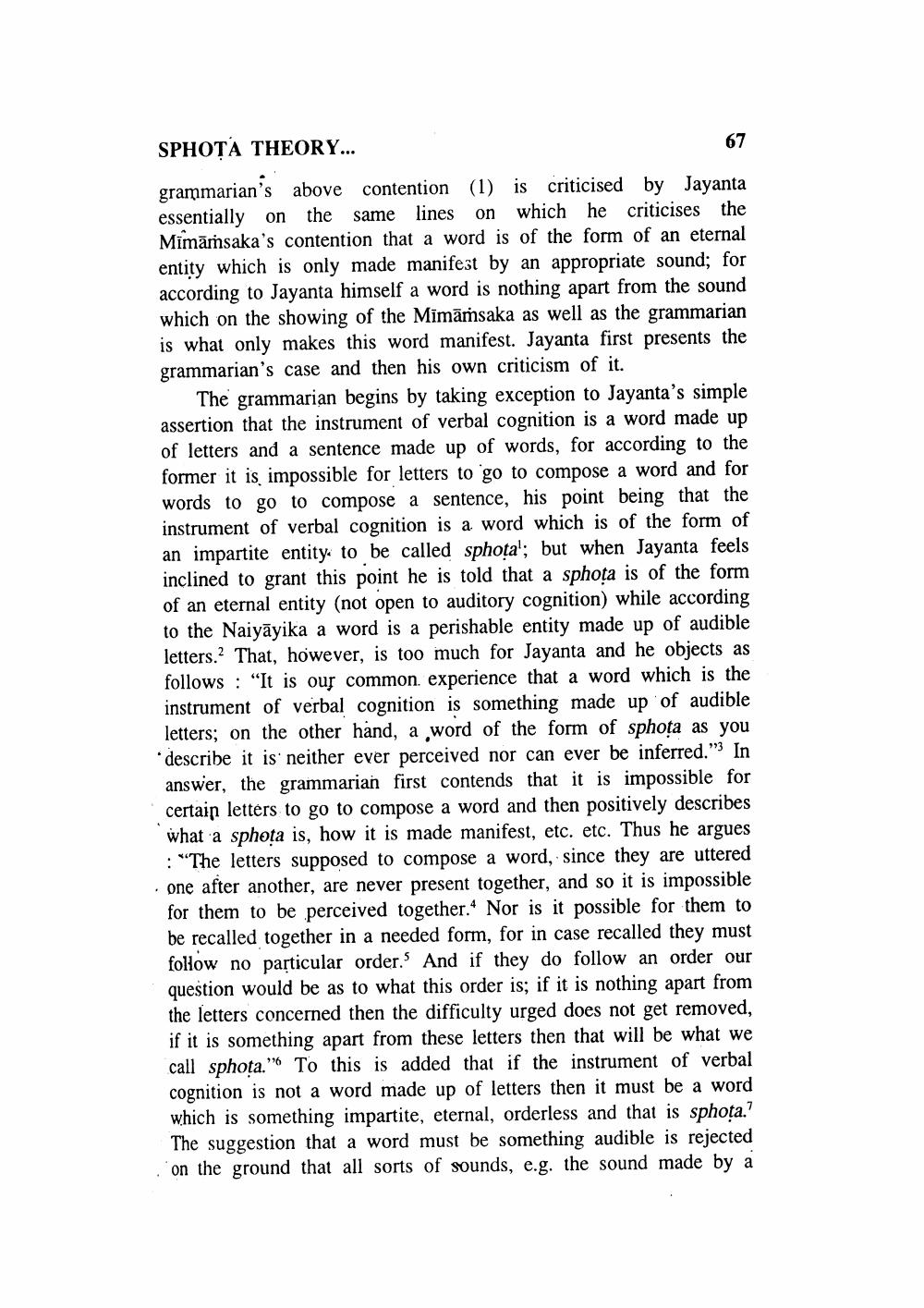________________
SPHOTA THEORY...
grammarian's above contention (1) is criticised by Jayanta essentially on the same lines on which he criticises the Mimārsaka's contention that a word is of the form of an eternal entity which is only made manifest by an appropriate sound; for according to Jayanta himself a word is nothing apart from the sound which on the showing of the Mimāṁsaka as well as the grammarian is what only makes this word manifest. Jayanta first presents the grammarian's case and then his own criticism of it.
The grammarian begins by taking exception to Jayanta's simple assertion that the instrument of verbal cognition is a word made up of letters and a sentence made up of words, for according to the former it is impossible for letters to go to compose a word and for words to go to compose a sentence, his point being that the instrument of verbal cognition is a word which is of the form of an impartite entity. to be called sphotal; but when Jayanta feels inclined to grant this point he is told that a sphota is of the form of an eternal entity (not open to auditory cognition) while according to the Naiyāyika a word is a perishable entity made up of audible letters. That, however, is too much for Jayanta and he objects as follows : “It is our common experience that a word which is the instrument of verbal cognition is something made up of audible letters; on the other hand, a word of the form of sphota as you describe it is neither ever perceived nor can ever be inferred." In answer, the grammarian first contends that it is impossible for certain letters to go to compose a word and then positively describes what a sphota is, how it is made manifest, etc. etc. Thus he argues : "The letters supposed to compose a word, since they are uttered one after another, are never present together, and so it is impossible for them to be perceived together. Nor is it possible for them to be recalled together in a needed form, for in case recalled they must follow no particular order. And if they do follow an order our question would be as to what this order is; if it is nothing apart from the letters concerned then the difficulty urged does not get removed, if it is something apart from these letters then that will be what we call sphota."" To this is added that if the instrument of verbal cognition is not a word made up of letters then it must be a word which is something impartite, eternal, orderless and that is sphota.? The suggestion that a word must be something audible is rejected on the ground that all sorts of sounds, e.g. the sound made by a




